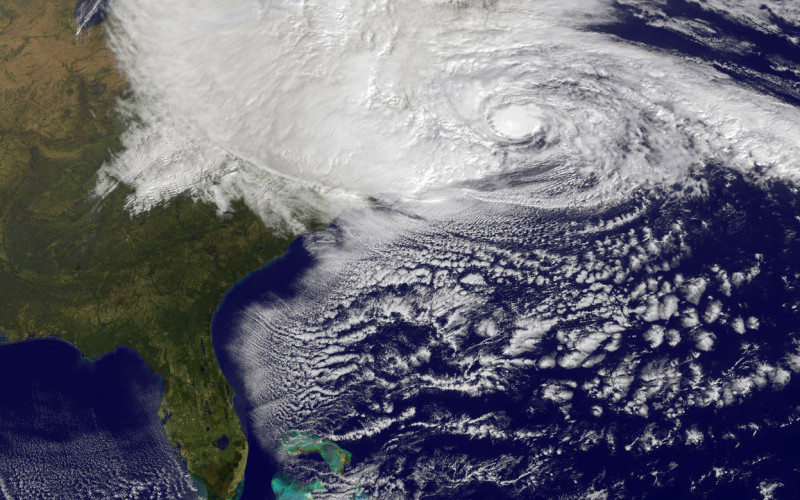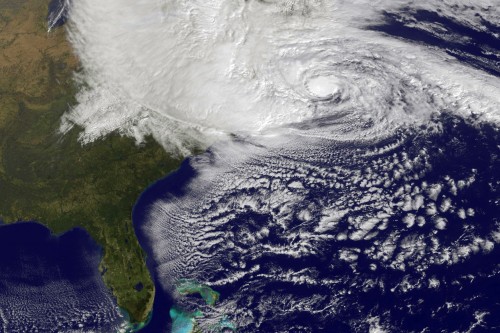Staff ensure uninterrupted care and safety first during Superstorm Sandy


As a fierce superstorm was bearing down on the East Coast and Delaware, employees throughout Christiana Care worked behind the scenes to help Christiana Care ride out the hurricane.
“What we saw throughout the storm was that everyone here pulled together,” said Diane Talarek. RN, MA, NE-BC, senior vice president, patient care services and chief nursing officer. “With the way that our staff came together to calm patients’ fears and partner with them in their care, you wouldn’t even have known that there was such bad weather outside. It was business as usual, with our incredible staff staying extremely dedicated to the care of their patients.”
As it became apparent that Superstorm Sandy had the potential to wreak major havoc, staff throughout the system began swift actions to prepare. The Materiels Department made sure that a sufficient supply of oft-used hospital items, such as IV pumps and blood-pressure monitors, was readily available in case of any disruption in the supply process. The Facilities Engineering Department ensured that oxygen tanks and the emergency generators’ fuel tanks were topped off. The Food and Nutrition Department ordered extra food in case flooding barred delivery trucks from reaching the hospitals. The Public Safety Department removed signs, carts and vehicles to sheltered areas at both hospitals.
“Just like you take your furniture off your deck during a storm, we were doing the same thing for all of those items that were on our campus,” said Jeff Benyo, corporate director, Safety & Emergency Management. “One of our first action steps was to button up the campus.”
During the weekend before Superstorm Sandy struck Delaware, leaders representing nearly three dozen departments and service lines held conference calls to plan and discuss the developing situation. Their guiding principle was: safety first.
Christiana Care leaders instructed their employees to make safety preparations for their families and loved ones before coming to work on Monday. Nearly all outpatient procedures were postponed, while patients who had been prepped Sunday night for procedures – such as colonoscopies – were rescheduled to early Monday so that they would be able to return home before driving conditions grew hazardous. Patients who were scheduled to go home on Monday were discharged early in the day so they could return home before the afternoon, when the eye of the hurricane was expected to pass over Delaware. For patients who were scheduled to be discharged during the height of the storm, staff made accommodations for them to stay overnight, free of charge.
Christiana Care sent four hospital beds to a shelter at William Penn High School in New Castle for people with serious medical needs who had to evacuate their homes.
Accommodations also were made for Christiana Care employees. Hundreds of cots were set up at both hospitals so staff could sleep there overnight. On Tuesday morning, with the worst of the storm beyond Delaware, staff enjoyed a free breakfast of eggs, sausage, hashbrowns and waffles as a thank-you for a job well done.
As it turned out, Christiana Care emerged from the storm largely unscathed. Staffing was increased during the height of the storm, but no flood-related injuries were reported to the two hospital emergency departments, and their census counts on Monday were relatively low.
Neither of the two electrical feeds that power the hospitals went out. Should that ever occur, Christiana Care is equipped with emergency generators that can power the hospitals for more than 4 days.
The biggest problems caused at Christiana Care by Superstorm Sandy turned out to be fixable leaks.
“There weren’t any serious problems,” said Bob Mulrooney, vice president of Facilities and Services. “Nevertheless, the response from our staff to Superstorm Sandy was excellent.”